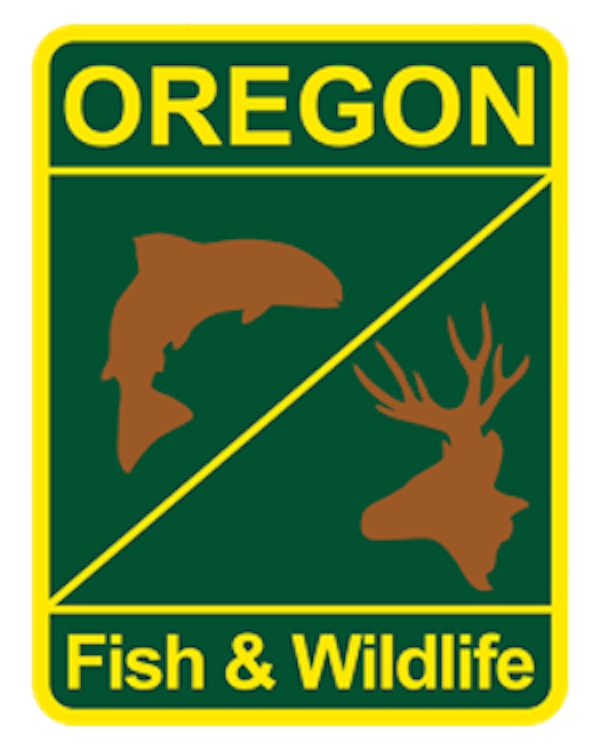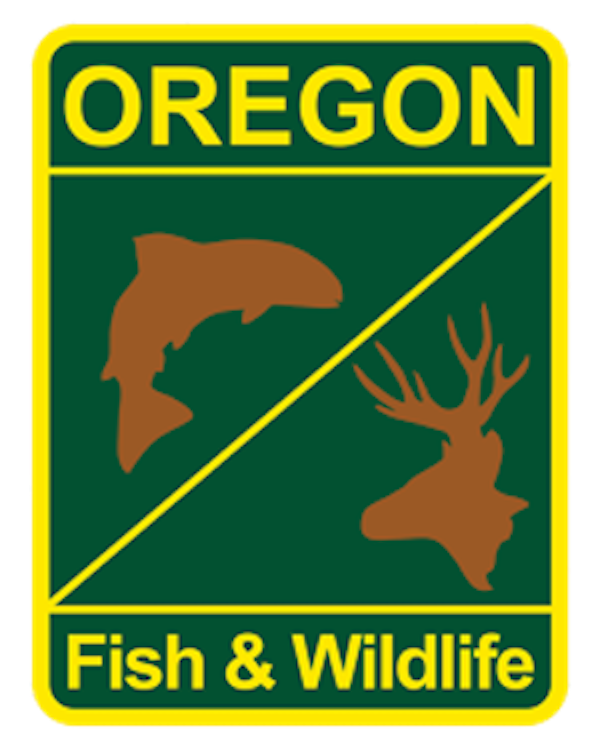Fish Report for 2-16-2021
Rock Creek Hatchery production update

by OR Department of Fish & Wildlife Staff
2-16-2021
Website
ROSEBURG, Ore – ODFW staff continues to work on short-term solutions for hatchery production to maintain Umpqua fisheries and long-range rebuilding planning after the Archie Creek Fire destroyed much of Rock Creek Hatchery in September.
Greg Huchko, Umpqua District fisheries biologist said ODFW will engage with the community on planning when recovery funding is more solidified, fisheries and habitat information is compiled, and rebuilding options are identified. Options to rebuild will be aligned with ODFW’s Coastal Multi-Species Conservation and Management Plan and new Climate and Ocean Change Policy , and basin specific plans. The amount of funding available will also be used to determine the final path forward.
“Once options are developed, we look forward to the communities’ input,” Huchko said.
Short-term solutions:
ODFW developed a short-term plan to continue in-basin hatchery releases while rearing capacity and some lost infrastructure is restored over the coming years. The agency is balancing moving forward quickly while ensuring monies are spent wisely.
Immediately after the fire, hatchery staff transferred about 700 surviving adult spring Chinook and summer steelhead to Cole Rivers Hatchery where the Chinook were then spawned. The summer steelhead will be spawned there later this winter. Cole Rivers will rear these fish to smolts and transfer them back to Rock Creek for acclimation once piping infrastructure repairs are completed.
“Our staff began the process of debris cleanup and repairing the infrastructure that we know will be part of any solution moving forward,” Huchko said. “This includes the piping, valves and intakes that supply water, as well as rebuilding two of the staff houses that were destroyed.”
Until the outcome of long-range planning for Rock Creek Hatchery is known and the infrastructure solutions are implemented, staff will continue standard broodstock collection for fish species raised at the hatchery and use space at other facilities for spawning and/or rearing. All offspring will be acclimated at Rock Creek.
Winter steelhead broodstock are currently being collected from anglers in the South Umpqua River and at the Canyonville collection facility and taken to Cole Rivers for spawning. Adult coho salmon collected below Galesville Reservoir were spawned at the Canyonville facility and their eggs moved to Cole Rivers Hatchery for eventual release into Cow Creek. Fall Chinook broodstock were collected by volunteers in the lower Umpqua River and Elk River Hatchery is raising those fish for release back into the Umpqua.
Long-range planning:
Staff is engaged in longer-term planning for how best to rebuild Rock Creek Hatchery’s lost capacity.
Huchko said the overarching goal for the rebuild remains a commitment to quality fisheries in the basin and an outcome that’s durable into the future in the face of changing environmental conditions.
Department staff will analyze current and future river flows, temperatures, and disease-conditions, all of which have historically made rearing through the summer months a challenge at Rock Creek Hatchery. These conditions are expected to worsen in the future as a result of both the Archie Creek Fire and a changing climate.
Discussions are ongoing with insurance providers and FEMA to understand what monies may be available, the limitations for spending, and when claims must be finalized.
More Reports
Commission extends red abalone closure, delists Borax Lake Chub

2-12-2021
SALEM, Ore.— Oregon’s Fish and Wildlife Commission voted unanimously to extend the current closure of the recreational abalone fishery for three...... Read More
OR Department of Fish & Wildlife Reports
for Thursday, February 11th, 2021
Grande Ronde River: Maintaining Good Flows For Fishing
Imnaha River: Will See A Push of Steelhead Out of The Snake Soon
Umatilla River: Water Clarity & Levels Have Started To Drop
Wallowa River: Catch Rates For Steelhead Are Starting to Pick Up
McKenzie River: ODFW Will Resume Stocking in April
Santiam River ( North Fork) Above Detroit Lake: Anglers Should Be Aware of A New Regulation Implemented This Year
Alsea River: Winter Steelhead Fishing Continues to Be Slow
Kilchis River: Slow Last Weekend Despite Good Conditions
Necanicum River: The Hatchery Run On The River is Winding Down
Nehalem River: Nehalem River Report
Nestucca River: River Was High & Fishing Was Slow
Siletz River: Steelhead Fishing Continues to Be Slow Despite The Ideal Conditions
Siuslaw River: The River Has Dropped Into Shape & Will Have Good Conditions Through The Weekend
Trask River: Fishing Has Been Slow
Wilson River: Wilson Dropped Into Shape Last Week
Owyhee River: Owyhee River Report
Applegate River: Applegate River Report
Illinois River: Expect Rising River Over The Weekend

Website Hosting and Design provided by TECK.net